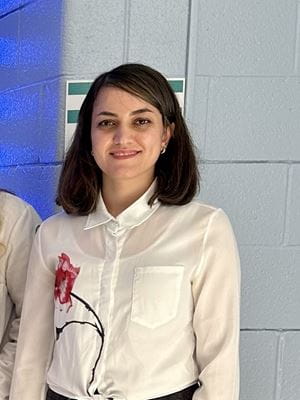The web Browser you are currently using is unsupported, and some features of this site may not work as intended. Please update to a modern browser such as Chrome, Firefox or Edge to experience all features Michigan.gov has to offer.
Safe Routes to Health
Safe Route to Health (SR2H) - Michigan Fitness Foundation

By: Froogh Sadry
My name is Froogh Sadry, and I am an AmeriCorps member serving the Michigan Fitness Foundation by helping out with the Safe Routes to Health (SR2H) program. Specifically, I have had the pleasure of facilitating and leading six weeks of the Walk with Ease (WWE) program at Beaumont Commons in Farmington Hills. I believe being physically active is very important for everyone, especially seniors. Being active (especially as a senior) allows for people to keep their hearts healthy, boost their immune systems, reduce anxiety and depression, and alleviate arthritis symptoms.
Regarding recruitment, we posted a weekly flyer to the Beaumont Instagram page to advertise the WWE program. On top of that, the program coordinator distributed the flyers to senior residents at Beaumont Commons in Farmington Hills. We were successful in recruiting 16 people for this program. Most of the participants were senior residents at Beaumont Commons. In each session, we talked about different topics like the goal of the program, good body mechanics for walking, coping skills for having pain after two hours of walking, different types of arthritis, and how to keep ourselves physically active. The first hour of each session was designed to be educational about different topics related to being active while the last 30 minutes were dedicated to walking outside around the campus.
Our goal was to start by walking for 10 minutes and then adding five minutes to the walk each subsequent session. It was so impressive to see that some of our participants are fast walkers and to see that they really enjoyed walking in nature. I was responsible for guiding those fast walkers and measuring their time for their weekly progress reports, as well as helping them wherever else I could. My team member guided those participants who walked a little slower. They really enjoyed each session since it became a kind of social hour for them. They would talk about different stories from their lives and recommend different routes for the walks. We started by walking 10 minutes in week one and made the walk longer by five minutes each session after that. It has been very impressive to watch the growth that our participants have made, as most of the people who participate now go on 20-to-30-minute walks three times a week.
During the second week of the program, we gave the participants a pedometer to help motivate them. These pedometers allowed them to count their steps and complete their walking diary after each session, which helped them measure their week-to-week progress. It is very surprising to see that they are still using their pedometers every session to see how many steps they can add to their walks. In the last session, we gave them a graduation certificate and advertised our next WWE program, which will be in Grosse Pointe. We are hoping that we will have them in our next program as well.